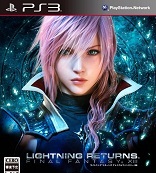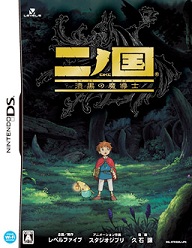Yggdra Union
Gameboy Advance
Reviewed: 1/17/07

Yggdra Union is the latest portable experience from the creators at Sting. It provides a unique experience in the world of strategy role-playing games and is a worthy second step in a process started with Riviera.
Yggdra Union‘s story focuses on Princess Yggdra, a woman who has been displaced after her country was taken over by an evil empire. Don’t let this rather cliche description fool you, however. The plot takes some very interesting twists and turns, and introduces some of the most likable characters in a portable RPG to date.
The one word that could be used to describe just about everything about Yggdra Union is “unconventional.” The game plays like a strategy role-playing game, but with twists that make it almost require a definition of its own. Each battle sequence sets players up on a small grid, yet even this grid is hard to define. Basically, each map is dynamically defined by the territory the battle takes place on. Some battles are battles of choke points, whilst others are wide open fields. Players guide tiny representations of their units around the map toward the enemy, then proceed to attack. Even this simple attack command makes the game unique however, because each character can have other characters join into the battle with them. Male characters have a diagnal zone that, if occupied by any allied characters, allows them to participate in the battle. Female characters have a crosshair symbol that does the same thing for any allied characters in that zone.
But the unique aspects about the game don’t end there, however. Battles start after all the lineups have been determined. Kind of like with Fire Emblem, there is a dual rock-paper-scissors system going on between axes, spears, and swords, as well as magic. Once the battles begin, the characters fight each other automatically in a sort of split screen, real-time fight. They start with a special attack against each other, and then continue automatically until one side is defeated. This seems like a hands off experience, but in reality it is far from it. Players must tell their units whether to fight passively to help build up power for the next battle, or aggressively to eliminate opponents more quickly.
After a certain point in the story, players can also begin to use special techniques utilized through various cards. Now don’t cry at the mention of cards, because these are different, as they are mostly just related to choosing one’s strategy; keep reading. Before each battle, players have a list of cards they have, and a certain amount they must pick from this selection screen. Each card has attack power, movement points, and a unique ability. These cards determine what special abilities players can use, as well as how much movement they have. This is especially important because if a player runs out of cards before the battle is over, he loses, so it is necessary to take the map size into consideration.
The attack power of the cards chosen is also important, as after a character is defeated, they still have a health circle that has a certain amount in it. The card’s attack power is applied against this amount, along with some other factors that seem rather hard to determine.
Graphically, Yggdra Union looks fantastic. The art style is incredibly unique, and the battle sequences are just superb. The character representations for story scenes also look great.
The music and sound effects of Yggdra Union are quite good, but not superb. The music is suitable, not memorable. The sound effects aren’t annoying, but most really don’t stand out as particularly good. The special attacks, on the other hand, sound suitably impressive.
The uniqueness of Yggdra Union alone is enough to stand it out among other RPGs as one worthy of a playthrough. It is the excellent overall quality, however, that will keep people playing once nuances of the unconventional gameplay has worn off.
-Joseph Wartick
 |
 |
|
| The battle sequences are detailed and impressive. |
| Score Breakdown | ||
| Overall
Great Out of 10 |
Gameplay | Great |
| Story | Great | |
| Graphics | Great | |
| Sound/Music | Good | |
| Replay Value | Very Good | |
| The Verdict: Great | ||








